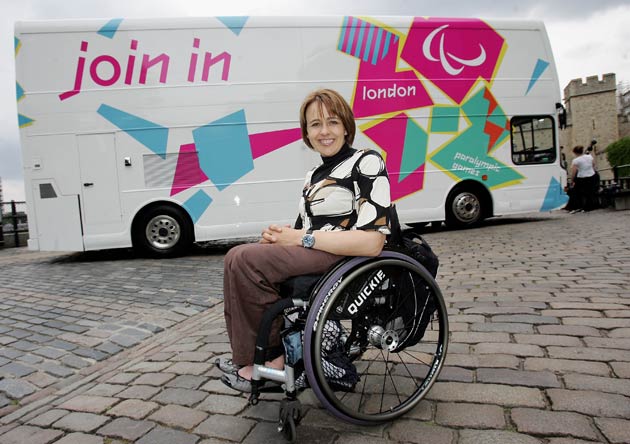Britain prepares to welcome Paralympics home

Your support helps us to tell the story
From reproductive rights to climate change to Big Tech, The Independent is on the ground when the story is developing. Whether it's investigating the financials of Elon Musk's pro-Trump PAC or producing our latest documentary, 'The A Word', which shines a light on the American women fighting for reproductive rights, we know how important it is to parse out the facts from the messaging.
At such a critical moment in US history, we need reporters on the ground. Your donation allows us to keep sending journalists to speak to both sides of the story.
The Independent is trusted by Americans across the entire political spectrum. And unlike many other quality news outlets, we choose not to lock Americans out of our reporting and analysis with paywalls. We believe quality journalism should be available to everyone, paid for by those who can afford it.
Your support makes all the difference.It was in Britain 62 years ago that the Paralympic movement was born. It is now less than two years until it returns home for the London Games, an event that Dame Tanni Grey-Thompson, the country's most decorated Paralympian, sees as a "watershed" moment for disabled sport in the UK and one that can showcase the abilities of disabled people to its widest ever audience.
Britain has an excellent record in the Paralympics and, with a host of rising stars across a range of sports, has high hopes of finishing in the top three of the medal table in 2012. But it is not, according to Grey-Thompson, who first competed in the Games in 1988 and has collected 11 Paralympian golds, only about winning medals.
"It is about legacy," said the 41-year-old. "It is about showing what disabled athletes can do – getting away from the 'Ah bless them, aren't they marvellous' attitude.' Disabled people are still more likely to experience discrimination at all levels, whether it's work, affordable housing or whatever. The Games can help make people think differently – help them see that everyone fits in somewhere in life and disabled people are not all crammed together into a far corner."
More than 1.6 million people have signed up for tickets for the Olympics and Paralympics that follow immediately afterwards and as the site in east London continues to take rapid shape, the prospective paralympians are already experiencing the stir of expectation in a country that has a proud tradition of supporting their best efforts.
"There is already a nervous excitement. It is already tangible," said Grey-Thompson. "For the British athletes it is a massive opportunity. We have more media interest and financial support than most in this country. In the US they do not even have a host broadcaster. There is a passion for sport in this country – all sport – that is almost unmatched."
It was in 1948 that Stoke Mandeville hosted the first ever Paralympics and Britain have consistently finished in the upper echelons of the medal table ever since, although it was not until the Barcelona Games in 1992 that their achievements really caught the wider public's attention.
"For the Paralympics in this country Barcelona was a first watershed moment and London can be another," said Grey-Thompson. "Topping the medal table will be hard simply because of the sheer size of China but top three is a possibility. There was a lot of coverage around Barcelona and that led to a massive change. After that you began to get stopped in the street, although these days people tend to say 'Didn't you used to be Tanni Grey-Thompson'!
"The level of pressure will be different. But a home Games does make people – particularly younger athletes – train harder. We need people to come and watch and I think they will."
For further information, details of how to get tickets and get involved in the 2012 Paralympics go to www.london2012.com
Join our commenting forum
Join thought-provoking conversations, follow other Independent readers and see their replies
Comments